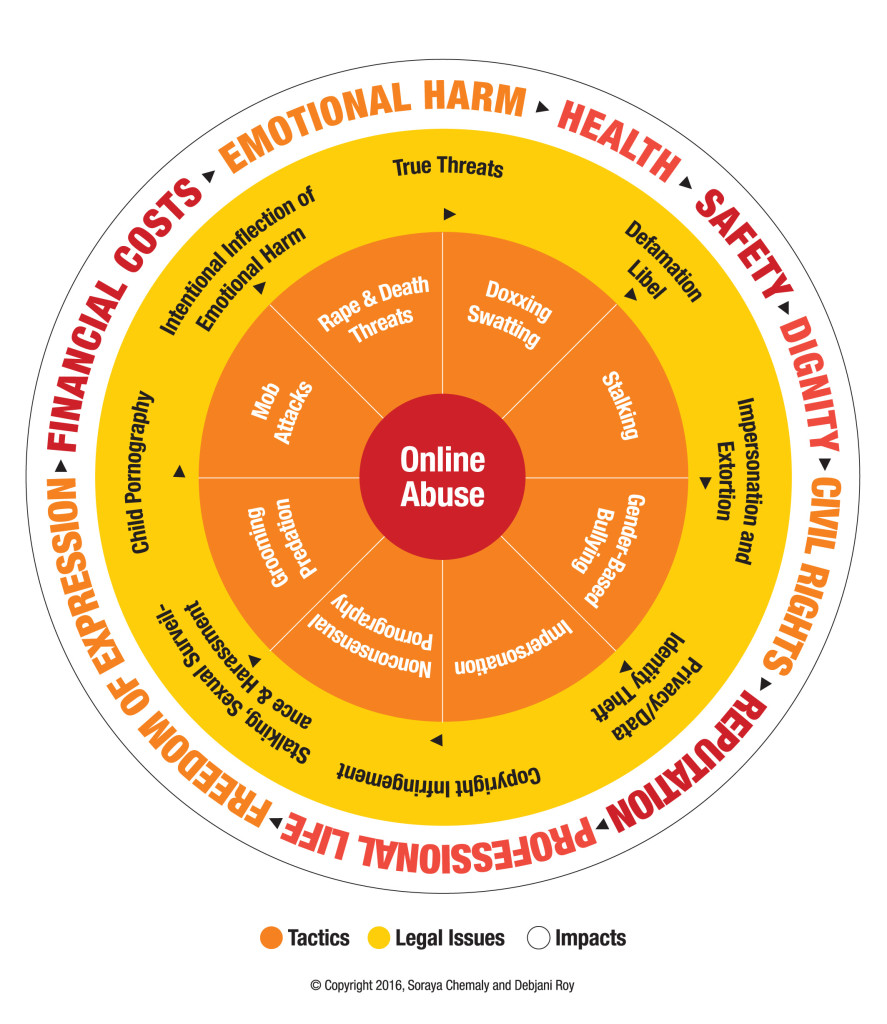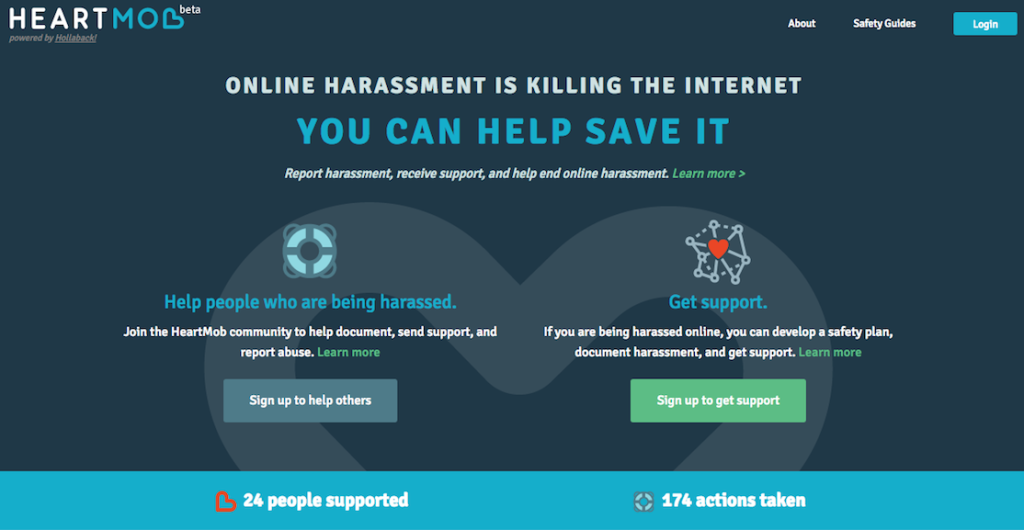There’s a new Speech Project about online harassment at Women’s Media Center, led by our friend, ally and supporter Soraya Chemaly!!
“The prevalence of online harassment toward women leads them to feel limited in their online interactions, and its frequent dismissal leads them not to take their own harassment seriously. By treating online harassment as the crime that it is, we make women less likely to blame themselves — because going online should not be another item on the list of behaviors women are told to avoid to stay safe….
The website contains a glossary of terms related to online harassment, research and statistics about its different forms, and a wheel demonstrating the different types, consequences, and legal classifications of online harassment.”



 “The vicious targeting of women, women of color, queer women, trans women, disabled women, and other oppressed groups who speak up on online has reached crisis levels. Hate speech and violent threats are being used to silence the voices of women and gender non-conforming people in the public discourse everyday.
“The vicious targeting of women, women of color, queer women, trans women, disabled women, and other oppressed groups who speak up on online has reached crisis levels. Hate speech and violent threats are being used to silence the voices of women and gender non-conforming people in the public discourse everyday. 